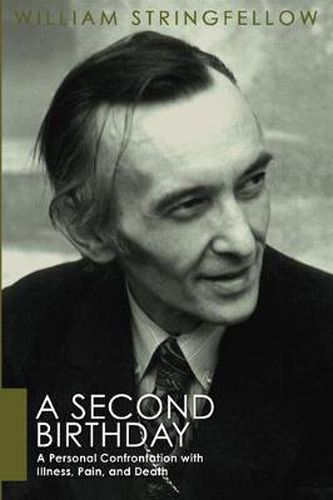Readings Newsletter
Become a Readings Member to make your shopping experience even easier.
Sign in or sign up for free!
You’re not far away from qualifying for FREE standard shipping within Australia
You’ve qualified for FREE standard shipping within Australia
The cart is loading…






This title is printed to order. This book may have been self-published. If so, we cannot guarantee the quality of the content. In the main most books will have gone through the editing process however some may not. We therefore suggest that you be aware of this before ordering this book. If in doubt check either the author or publisher’s details as we are unable to accept any returns unless they are faulty. Please contact us if you have any questions.
To endure pain is to suffer anticipation of death, in both mind and body. It must be acknowledged, confronted, suffered, and survived on its own terms, as it were, as the very aggression of death against life. What must be faced and felt, in the uttermost of a person’s being, is that assault of the power of death feigning to be sovereign over life–over the particular life of a particular person and over all of existence throughout all of history. It is, so to speak, only then and there–where there is no equivocation or escape possible from the fullness of death’s vigor and brutality, when a person is exposed to absolute vulnerability–that life can be beheld and welcomed as the gift which life is. William Stringfellow almost died. In the spring of 1968, he contracted a baffling and apparently hopeless disease that horribly wasted his body before a last-ditch operation brought about a dramatic cure. This is Stringfellow’s own account of that ordeal of pain and of the fundamental beliefs that sustained him in his agony and gave him the courage to undergo the dangerous surgery that saved his life. His vivid description of that experience, told without emotion or cant, is both startling and strengthening. His story is a personal testimony to the relevance of faith and love in the mystery of healing, and to the gift of life itself that few of us take time to recognize.
$9.00 standard shipping within Australia
FREE standard shipping within Australia for orders over $100.00
Express & International shipping calculated at checkout
This title is printed to order. This book may have been self-published. If so, we cannot guarantee the quality of the content. In the main most books will have gone through the editing process however some may not. We therefore suggest that you be aware of this before ordering this book. If in doubt check either the author or publisher’s details as we are unable to accept any returns unless they are faulty. Please contact us if you have any questions.
To endure pain is to suffer anticipation of death, in both mind and body. It must be acknowledged, confronted, suffered, and survived on its own terms, as it were, as the very aggression of death against life. What must be faced and felt, in the uttermost of a person’s being, is that assault of the power of death feigning to be sovereign over life–over the particular life of a particular person and over all of existence throughout all of history. It is, so to speak, only then and there–where there is no equivocation or escape possible from the fullness of death’s vigor and brutality, when a person is exposed to absolute vulnerability–that life can be beheld and welcomed as the gift which life is. William Stringfellow almost died. In the spring of 1968, he contracted a baffling and apparently hopeless disease that horribly wasted his body before a last-ditch operation brought about a dramatic cure. This is Stringfellow’s own account of that ordeal of pain and of the fundamental beliefs that sustained him in his agony and gave him the courage to undergo the dangerous surgery that saved his life. His vivid description of that experience, told without emotion or cant, is both startling and strengthening. His story is a personal testimony to the relevance of faith and love in the mystery of healing, and to the gift of life itself that few of us take time to recognize.